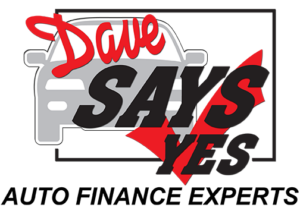When it comes time to purchase a car, the inevitable question arises: “What’s my credit score?” If you find yours less than stellar, or perhaps you’ve never checked it until now, the news may not be encouraging. However, don’t let your credit score deter you from pursuing a car purchase. At Dave Says Yes, we specialize in assisting buyers with all credit scores, including those with damaged credit. Our expert finance team takes pride in being able to help buyers with low credit scores. Naturally, you might have inquiries about car shopping with poor credit, and we’re here to address them, ensuring you’re fully informed before embarking on your search. Here are some common questions regarding car shopping with poor credit:
Can I Buy A Car With Bad Credit?
Absolutely. We reassure all shoppers with bad credit that securing a car loan is indeed possible, despite their credit standing. Numerous credit institutions specialize in aiding individuals with poor credit explore their options and even enhance them through strategic measures.
What Is A Bad Credit Score?
You’re likely curious about what qualifies as a “bad credit score” in the eyes of vehicle lenders. While there’s no universal threshold, credit scores are typically categorized into five tiers.
For example:
Super Prime: 781 and above
Prime: 661 to 780
Non-Prime: 601 to 660
Subprime: 501 to 600
Deep Subprime: 500 and below
While specifics may vary among lenders, falling into the non-prime tier indicates “poor credit.” Scores in the subprime or deep subprime range signify “bad credit.” However, not all poor credit is equal, and even slight enhancements in your credit score can yield significant improvements in car loan terms.

What Leads To Poor Credit?
Having bad credit doesn’t reflect on your character or behavior. There’s no need to feel ashamed about it—many Americans experience it for various reasons. Some individuals have poor credit simply because they possess minimal credit history. If you’re young or haven’t opened many credit accounts, your credit score might be low. At times, poor credit arises from limited credit activity rather than negative credit behavior.
In other cases, poor credit results from past instances of defaulting on payments. This could occur due to various reasons and can happen to anyone. While it does affect your credit score, it doesn’t necessarily predict your future borrowing or repayment habits. Sometimes, a poor credit score stems from maintaining a high debt-to-credit ratio, even if you consistently make timely payments. A high debt-to-credit ratio indicates that you utilize most or all of your borrowing limit each month.
Why Does Credit Matter For Auto Loans?
Your credit score significantly influences your experience obtaining an auto loan as lenders use it to determine your interest rate. Essentially, when you secure a car loan, you’re purchasing money, and the interest rate represents its cost. Individuals with high credit scores typically secure lower interest rates compared to those with poor credit. Lenders utilize your credit score as a tool to forecast your likelihood of making timely payments and avoiding loan defaults.
A stellar credit score demonstrates your ability to make payments for previous loans promptly. This instills confidence in lenders regarding your repayment reliability, thus resulting in a lower interest rate. Conversely, if you possess a poor credit score, lenders may charge you a higher interest rate to safeguard themselves against potential repayment risks. They may harbor concerns about your repayment capacity and seek compensation for the perceived lending risk by charging a higher interest rate.
Is Credit The Sole Determinant?
Not entirely. This is encouraging news for those individuals with poor credit. Lenders take various factors into account beyond just your credit score. For instance, they consider your income level and debt-to-income ratio. They assess your monthly income and the portion already allocated to other credit products and accounts, such as credit cards, mortgages, and student loans. A low credit score combined with a high income and minimal debt can present favorably to a lender.
Additionally, lenders evaluate your assets, encompassing your total liquid cash across various accounts. Substantial assets signify to lenders that you possess an emergency fund capable of covering your loan, even in the event of job loss. Lastly, lenders appraise the value of the car you intend to purchase. A newer car typically translates to a lower interest rate since newer vehicles hold greater value than older ones. In the event of vehicle repossession, lenders stand a better chance of recouping their funds from a newer car.
How Can I Secure A Better Rate?
If you’re dissatisfied with the offered rates, several strategies might help. Firstly, opt for the shortest repayment period within your means. Shorter repayment periods typically entail lower interest rates. While monthly payments may increase, you’ll ultimately spend less on interest, reducing the cost of borrowing.
Consider accumulating a larger down payment if feasible. This decreases the amount you need to borrow, resulting in lower monthly payments. While it might not secure a better interest rate, it makes payments more manageable. Additionally, contemplate enlisting a cosigner. If you have someone with a good credit score willing to cosign your car loan, this could potentially lead to a better interest rate.

